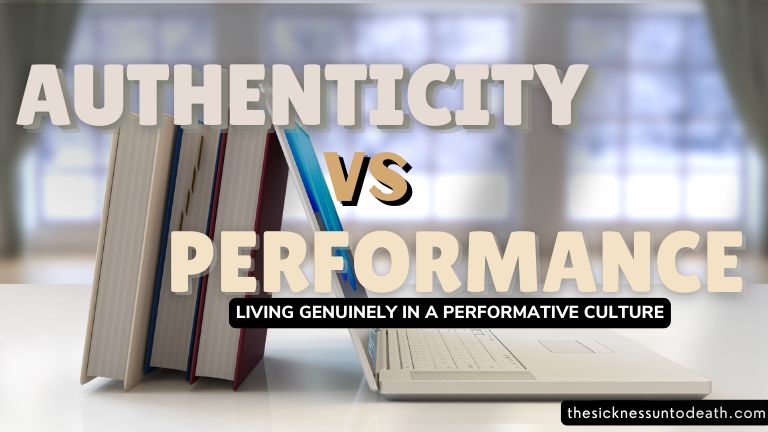In today’s world, where social media often dictates norms and values, the pressure to perform rather than to be authentic can be overwhelming. This performative culture infiltrates not just our social lives but our professional environments as well, pushing many to adopt personas that align with societal expectations rather than genuine self-expression. Søren Kierkegaard, a 19th-century Danish philosopher, dissected this dilemma long before the digital age, offering profound insights into living authentically amidst a society that often rewards the opposite.
Kierkegaard and Authenticity
Kierkegaard was deeply concerned with the concept of authenticity, which he considered essential for a fulfilling life. To him, authenticity wasn’t just about being honest or true in a moral sense; it was about aligning one’s actions and choices with one’s own core values and beliefs. This alignment is challenging, especially when what is true to us conflicts with what is expected by others.
The Cost of Conformity
The modern workplace and social media are arenas where the tension between authenticity and performance is especially pronounced. In professional settings, there might be an unspoken requirement to present oneself in a certain way, to network using accepted norms, or to participate in corporate cultures that may not resonate on a personal level. Similarly, social media often encourages crafting an idealised image of oneself, which can lead to a disconnect between one’s online persona and true self.
Applying Kierkegaard’s Insights
- Self-Examination: Kierkegaard believed that self-examination is crucial to understanding one’s true self. Regular introspection helps identify what genuinely matters to us beyond societal accolades or pressures. Asking oneself questions like, “Am I pursuing this path because it aligns with my values, or because I seek approval?” can be a starting point.
- Courage to Stand Alone: One of Kierkegaard’s key themes is the “crowd” being untruth. The courage to stand alone, to sometimes resist going along with the crowd when it conflicts with one’s principles, is a vital part of living authentically. This doesn’t necessarily mean always being in opposition but rather not allowing the fear of standing alone to dictate one’s actions.
- Transparency and Honesty: Authentic living requires a level of transparency with oneself and with others. This means being honest about one’s feelings, doubts, and uncertainties. In a performative culture, showing vulnerability might seem counterintuitive, but it can lead to more genuine connections and interactions.
- Defining Success on Your Own Terms: In a world where success is often measured by external benchmarks—likes, shares, promotions, etc.—defining success on your own terms is revolutionary. What does success mean to you? Is it peace of mind, the joy of work, or the impact you have on others? Realigning your metrics of success can significantly shift how you engage with the world.
- Mindful Engagement with Social Media: Be intentional about how and why you use social media. Is it a tool for connection, or does it become a stage for performance? Being mindful of consumption and participation can help mitigate the pressure to conform to performative norms.
By integrating Kierkegaard’s insights on authenticity, individuals can cultivate a more genuine existence, even in a culture that often values performance. This not only enhances personal well-being but also encourages a more authentic collective societal environment. Remember, as Kierkegaard suggested, the most significant task for anyone is to become oneself, fully and completely.

